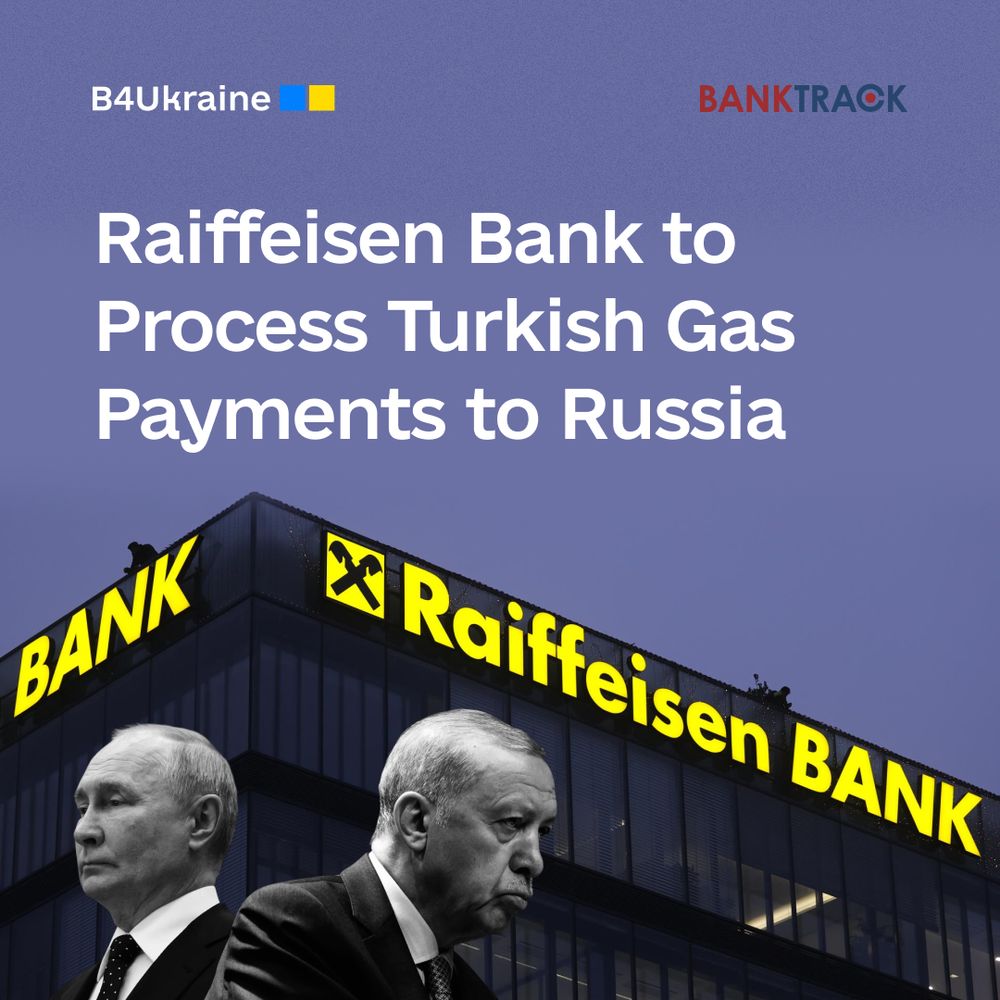
According to reports by Middle East Eye (MEE) on Friday, a Turkish government official has confirmed that Turkey intends to route future natural gas import payments to Russia through Austria’s Raiffeisen Bank International (RBI), following a tightening of US sanctions on Russia’s Gazprombank.
MEE reports that agreement will see RBI process more than €7 billion in annual Turkish gas payments to Russia - a substantial contribution to the Russian federal budget, 30% of which derived from oil and gas-related revenues in 2024. It will also likely enable Turkey to continue importing Russian natural gas through the TurkStream pipeline, much of which passes onward to EU countries. According to the Centre for Research on Energy and Clean Air (CREA), Europe continued to import approximately €510 million per month in Russian pipeline gas via Turkstream between January and April 2025.
Less than two weeks before MEE reported on this deal, the European Union released its “Roadmap towards ending Russian energy imports”, a plan to phase out EU gas imports from Russia by 2027, which cites the urgency of ending the “financial support to Russian war economy” enabled by these imports. The continued role that RBI apparently seeks to play in facilitating Turkey’s continued import of natural gas from Russia risks establishing a crucial lifeline for Russia’s gas exports in contradiction of the EU’s roadmap. In prolonging a further revenue stream for the Kremlin, the alleged agreement illustrates the crucial financial architecture that some EU financial institutions continue to provide to Russia for prolonging the illegal war on Ukraine.
RBI, which remains by far the largest Western bank in Russia, is reported to participate in the Turkey-Russia scheme in the wake of a series of scandals over previous months involving alleged ongoing relationships with Russian military suppliers and investments in sanctioned Russian entities, as well as reports that the bank sent billions of dollars, francs, and euros to Russia in the weeks preceding the full-scale invasion of Ukraine. The bank has repeatedly claimed that it seeks to fully exit Russia, reduce its lending and payment business there in the meantime, and comply with all applicable sanctions and its human rights commitments. However, by continuing to facilitate key revenue streams for the Kremlin, the bank remains systemically important in financially enabling Russia’s illegal war on Ukraine.
Max Hammer, Human Rights Campaigner at BankTrack, said: “At a time where the EU is increasingly seeking independence from dirty Russian energy, RBI has yet again chosen to open up a new stream of revenue for Russia’s war. This is not a new issue: Along with 75 NGOs, BankTrack has been calling for a global boycott of Russian fossil fuels since March 2022, and many commercial banks have severed their ties with the Russian fossil fuel industry. By continuing to enable Russian gas exports, RBI is showcasing once more that it will stop at nothing to turn a profit from this illegal war.”
Nezir Sinani, Executive Director at B4Ukraine, said: “The EU’s roadmap sends a clear political message: Europe is moving swiftly toward full independence from Russian energy, with legislation to cement this shift expected any day now. In this context, the reported facilitation of gas payments from Turkey to Russia feels tone-deaf. It risks undermining Europe’s drive for energy autonomy and territorial security.”